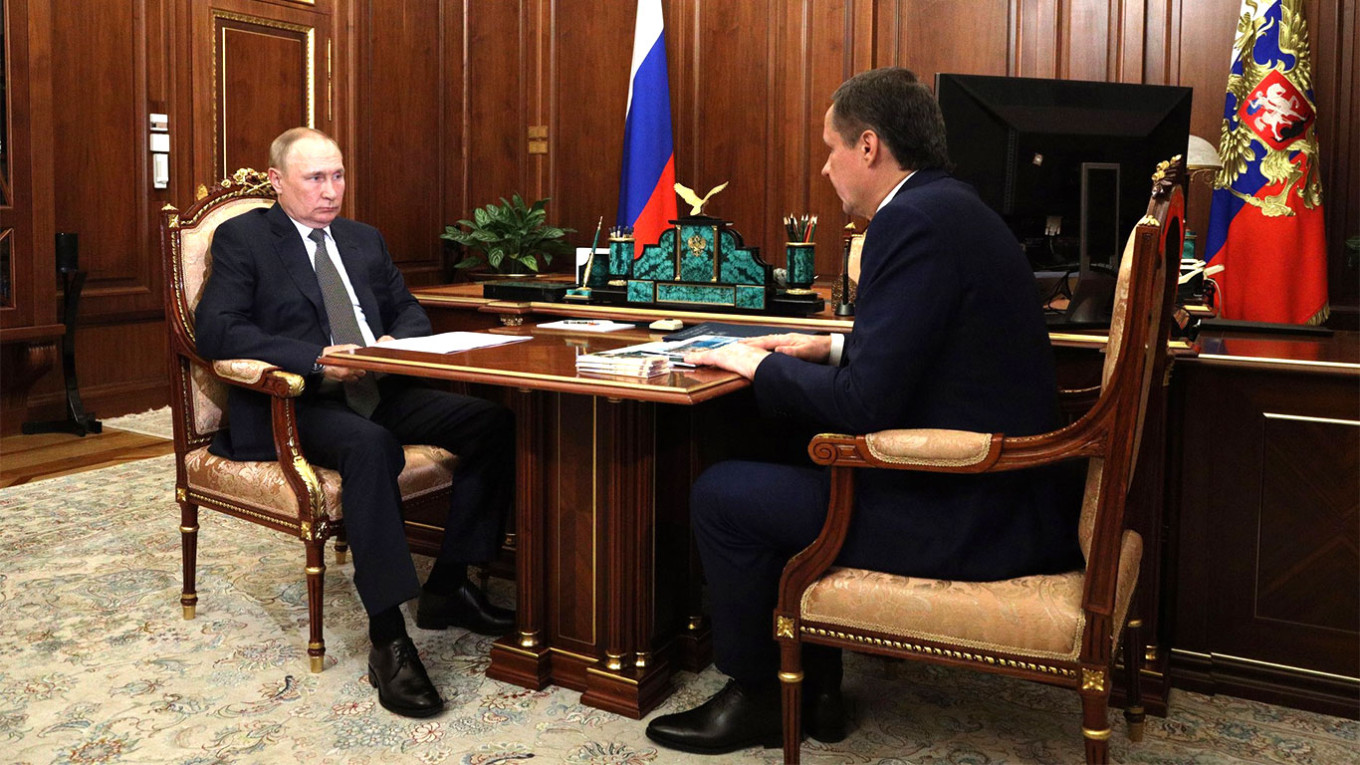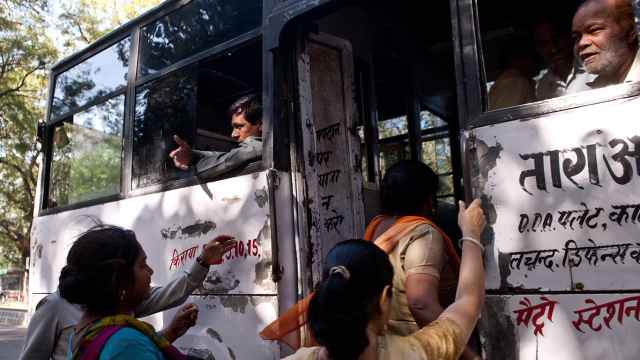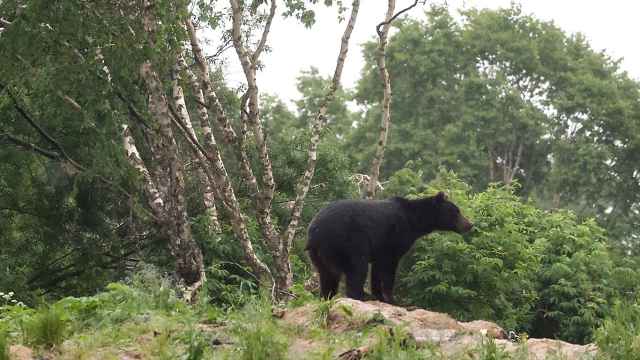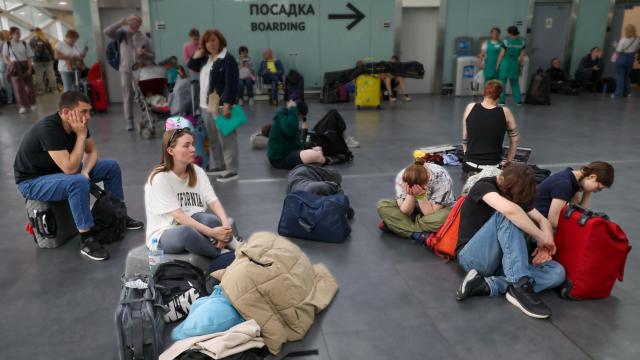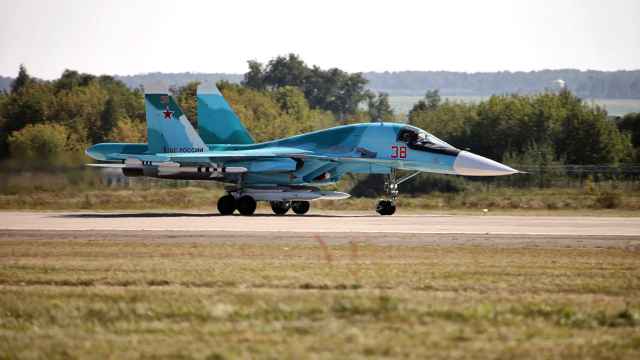For many Russians, their country’s war against neighboring Ukraine is no longer a distant conflict that has no impact on their lives. Drones loaded with explosives have darkened the skies of not only border regions, but Moscow, too, while cross-border incursions by armed groups are now a regular occurrence in the Belgorod region. All the while, Vladimir Putin continues to pretend that nothing major is happening. The president intends to fight this war to the bitter end, but in order to avoid ever appearing to have lost, he cannot clearly articulate its ultimate goals.
Amid this deafening silence, anyone who recognizes the new reality looks preferable. As the figures responsible for dealing with the aftermath of attacks and for trying to reassure the residents of their regions, Russia’s regional governors have found themselves in the spotlight, and may well be able to boost their popularity through effective crisis management.
The increased shelling of the Belgorod region — the first Russian region to find itself dragged into Putin’s war — and incursions by armed groups are likely the greatest test Governor Vyacheslav Gladkov has faced in his career, but they have also provided him with plenty of opportunities to excel. Parts of the region, including the town of Shebekino with a population of 40,000, regularly come under fire, and residents of at-risk areas are being evacuated en masse away from the front. Gladkov was even publicly negotiating a prisoner exchange at one point, though he then quickly fell silent, likely upon the Kremlin’s orders.
The governor has also said openly that the region has insufficient funds to restore infrastructure after the shelling. Back in the 1990s, it was not unheard of for powerful governors to talk publicly about budgetary problems, but in Putin’s Russia, it’s highly unusual.
It might seem that the federal leadership and Putin himself should be taking control of the tense situation in the region. But for now, any federal intervention has been limited to phone calls between the president and local authorities. Residents of the region have gotten no reassurances from Putin.
Nor did the president have any words of support for Muscovites in the aftermath of the Moscow drone attack last month. Putin did eventually address the incident, but most of his tirade was devoted to the history of Ukraine and Russia. Instead, the reassurance came from Mayor Sergei Sobyanin, who said mobile teams of doctors were being set up in the city, promised to provide all necessary assistance, and tried to convince people that the city authorities would not abandon those impacted by the attacks.
This is not the first time that the central government has adopted this hands-off approach. During the pandemic, Putin also stepped back from talking about problems and trying to solve them, instead transferring all powers — and responsibility — to the governors.
The logic back then was obvious. Russian officials were having to make difficult choices between unpopular lockdown measures and additional deaths. Either option was doomed to alienate at least part of the public.
While the ratings of governors dropped accordingly, Putin simply stood on the sidelines. He only began to talk about the pandemic once clear response protocols and vaccines had been developed. Then Putin reported on successes that had nothing to do with him, since he had not been involved in the decision-making process.
The current situation is potentially even more dangerous than the pandemic, and that is why Putin remains silent. As soon as the original plan — to take Kyiv in three days — failed, the president distanced himself from the military agenda.
Putin is neither willing nor able to stop the war and admit his mistakes. At the same time, he knows that attempting to put the country on a full-scale military footing would be extremely unpopular. Putin clearly expects to achieve his goal by attrition. In the meantime, he prefers to keep well away from issues that could jeopardize his ratings.
All of this will strengthen the position of the governors and some government officials, since the more the war encroaches onto Russia’s home territory, the more they will be needed. Opinion polls confirm that Russian society’s desire for stability is as strong as ever. According to research conducted by the independent sociological group Russian Field, in presidential elections, Russians would rather vote for an “effective manager” than for a moralizer.
While Putin tells his people that “everyone has to die, and it’s better to do so in war than from alcoholism,” and then descends into another polemic about the history of Ukraine, “Anglo-Saxons,” and anti-colonialism, the governors simply say: “all necessary assistance will be provided.” It’s not hard to see which is the winning rhetoric.
For many years, the Kremlin diminished the role of governors, turning them into mere executors of Putin’s decisions, his operational managers on the ground. The war — and the president’s self-isolation from real problems — has changed everything. The enforced publicity of regional leaders may serve to restore their genuine popularity and authority. Governors are finally starting to behave like real public politicians.
There is no clearer illustration of this than the evolution of Gladkov. From managing a broadly positive agenda of promises of investment and posting upbeat videos on his Instagram page, he has now switched to full military mode, visiting bombed-out areas and talking to those affected. And it’s paying off: his approval rating is close to 90%, an unprecedented figure among Russian governors.
Both Gladkov and Sobyanin understand that the average Russian does not really differentiate between the spheres of responsibility of governors versus the federal government, and that in any case, they will seek answers from whomever is closer. The regional heads anticipate grassroots demand and respond to it. In other words, they are doing what Putin stopped doing long ago.
Having permitted themselves to show initiative, these regional politicians are still only working to achieve specific tactical goals rather than far-reaching plans. Gladkov monitors his rating zealously, while Sobyanin is mindful of September’s mayoral elections. But everything that is happening shows that amid the state of semi-paralysis within the power vertical, those nearer to the bottom of it are gaining unprecedented autonomy, and that if needed, Russian officials are prepared to disregard the seemingly unbreakable rules of that vertical. In the event of the system’s destruction, these people will not simply disappear. They will integrate into the new order — or even start to create new orders themselves.
This article was originally published by The Carnegie Endowment for International Peace.
A Message from The Moscow Times:
Dear readers,
We are facing unprecedented challenges. Russia's Prosecutor General's Office has designated The Moscow Times as an "undesirable" organization, criminalizing our work and putting our staff at risk of prosecution. This follows our earlier unjust labeling as a "foreign agent."
These actions are direct attempts to silence independent journalism in Russia. The authorities claim our work "discredits the decisions of the Russian leadership." We see things differently: we strive to provide accurate, unbiased reporting on Russia.
We, the journalists of The Moscow Times, refuse to be silenced. But to continue our work, we need your help.
Your support, no matter how small, makes a world of difference. If you can, please support us monthly starting from just $2. It's quick to set up, and every contribution makes a significant impact.
By supporting The Moscow Times, you're defending open, independent journalism in the face of repression. Thank you for standing with us.
Remind me later.



